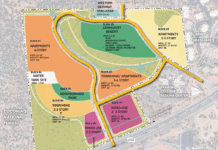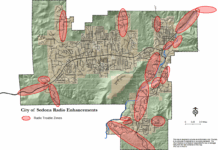Fifty years ago when players would get hurt, coaches would yell and scream “rub some dirt on it and get out there,” challenging their young men and women to get over their personal pain for the team’s overall well-being.
Bumps and bruises, ankle sprains, knee pain, shoulder stress and body fatigue was just another day at the office and usually how athletes experienced their daily lives.
With nowhere to turn, athletes would return to the field of play despite their pain and unknowingly risk further injury.
Careers would come to an end much earlier then anticipated. Frightful, agonizing pain filled the athletes’ life after sports as they thought to themselves, “maybe I should have been more careful.”
As we get closer to the year 2010, the world of athletics has certainly changed. This isn’t to say athletes don’t live through pain now, because they certainly do. Better training regimens, diet and coaching has turned today’s athlete into a monster, a freak of nature one might say.
Of course a big part of all this change is today’s athletic trainer, or sports medicine doctor.
A doctor you say?
Yes. A doctor that specifically treats athletes on and off the field in an effort to keep them healthy so they can participate in what they love, sports.
Randy Boardman, a 49-year-old Cottonwood resident, is an athletic trainer working out of the Verde Valley Medical Center who works with student-athletes at Sedona Red Rock High and Mingus Union High.
Seen walking the sidelines at many sports between the two high schools including football, volleyball, soccer, basketball, baseball and softball, Boardman has become well-known in the Verde Valley.
“My parents moved to Flagstaff almost 30 years ago and I attended Northern Arizona University and was interested in the engineering program,” Boardman said.
“After two years, sports medicine caught my interest and I never looked back.”
Starting in 1984 at VVMC, Boardman began working with the athletes at Mingus and in the last two years has begun his work with Sedona athletes as well.
Boardman believes sports medicine is not only a way to help injured athletes but to help prevent injuries as well, something he takes pride in.
“Whether it’s giving strength and conditioning programs to coaches or helping the athletes prevent serious injury by walking them through the right way to do things, I think it’s my job to make sure we take care of those in need,” Boardman said.
Recently, Boardman shared with Sedona cross country Head Coach Harry Schneider a program to keep his athletes hydrated so they don’t lose focus on the course. He also gave tips to Head Coach Bob Murphy for Sedona boys basketball on ankle programs to help keep them strong for the season.
Boardman explained that pain is a part of an athlete’s life and so are injuries, but being smart about those injuries can make a difference in a young athlete’s life.
“Right now athletes at Sedona and at Mingus are just kids. They are just learning what their bodies can do physically and mentally and part of my job is to show them the proper way to do things so injuries can stay at a minimum and they can maximize their potential,” Boardman said.
Boardman, a father of three and husband of 29 years to Joni, spends anywhere from 15 to 20 hours a week working with high school athletes here in the Verde Valley after his full-time job at VVMC is complete.
An athlete himself in high school, Boardman enjoys watching and playing sports and knows how physically demanding they can be on a young person’s body.
As for the athletic trainer in him, Boardman is glad to be a part of the lives of many young athletes here in the Verde Valley.
“I see how much time coaches give to their athletes here and I want to do the same things. Help them help themselves is the way I see it,” Boardman said.
For now, Sedona doesn’t have the athletic training program that Mingus does where juniors and seniors at the high school actually get to shadow real life trainers and work in the field, but Boardman hopes one day it will happen.
“Sedona has worked well with me and I thank John Parks and Dr. Don Adams for all they’ve done to help move the program along. These kids deserve it,” Boardman said.
Adams has been involved with Sedona since the beginning in 1994, and the two have worked together numerous times to make sure these athletes stay healthy.
“In the end I just want to help and be there for the kids to improve their lives physically and mentally, and I think we’ve done that,” Boardman said.
Brian Bergner Jr. can be reached at 282-7795, ext. 131, or e-mail bbergner@larsonnewspapers.com






















